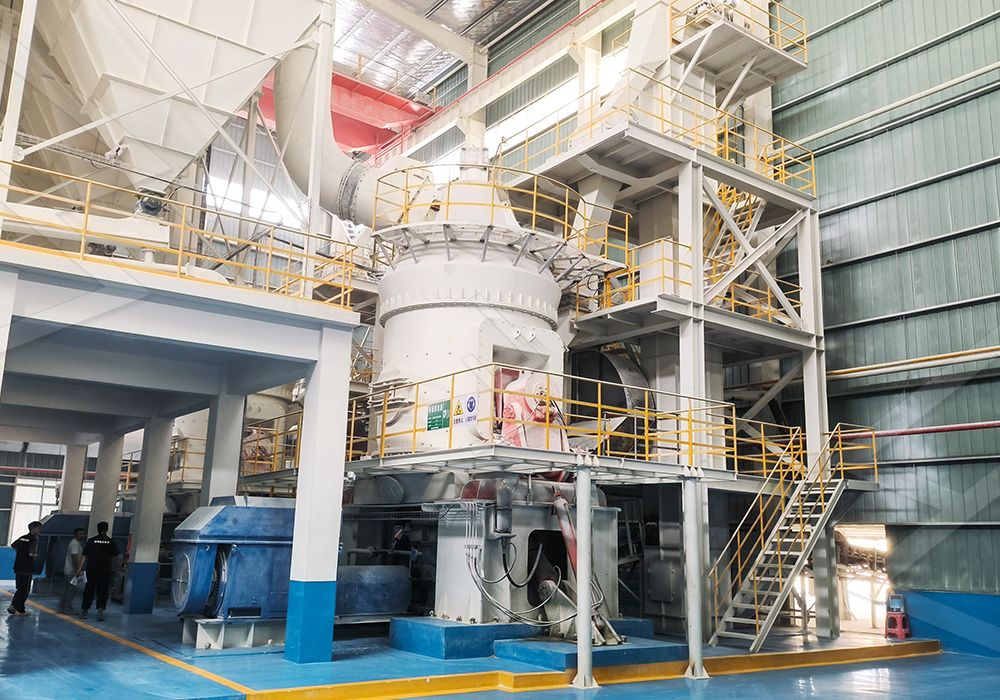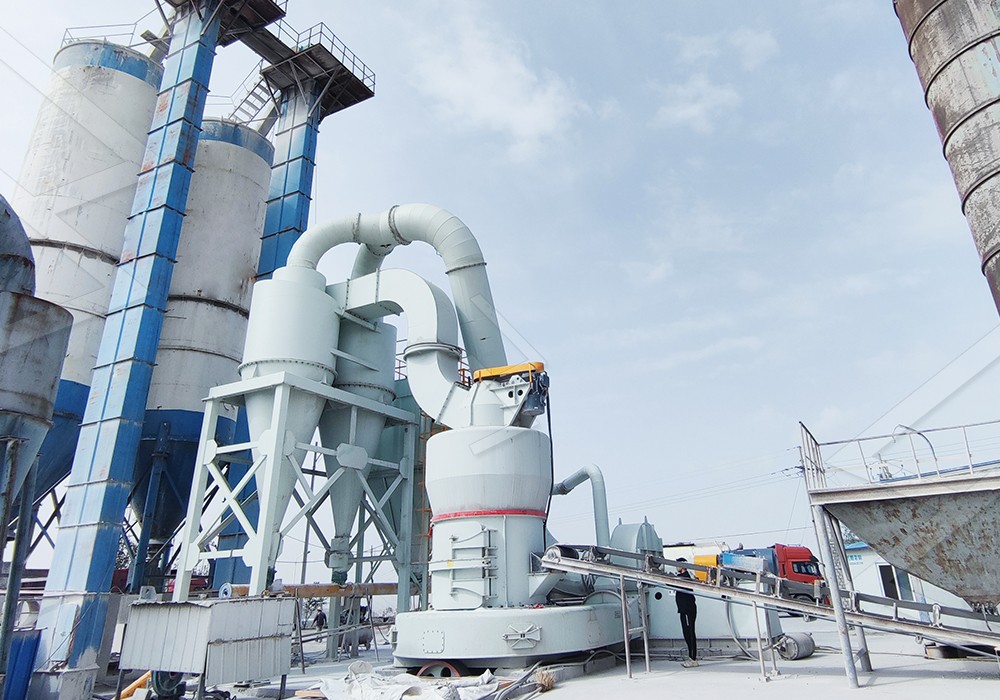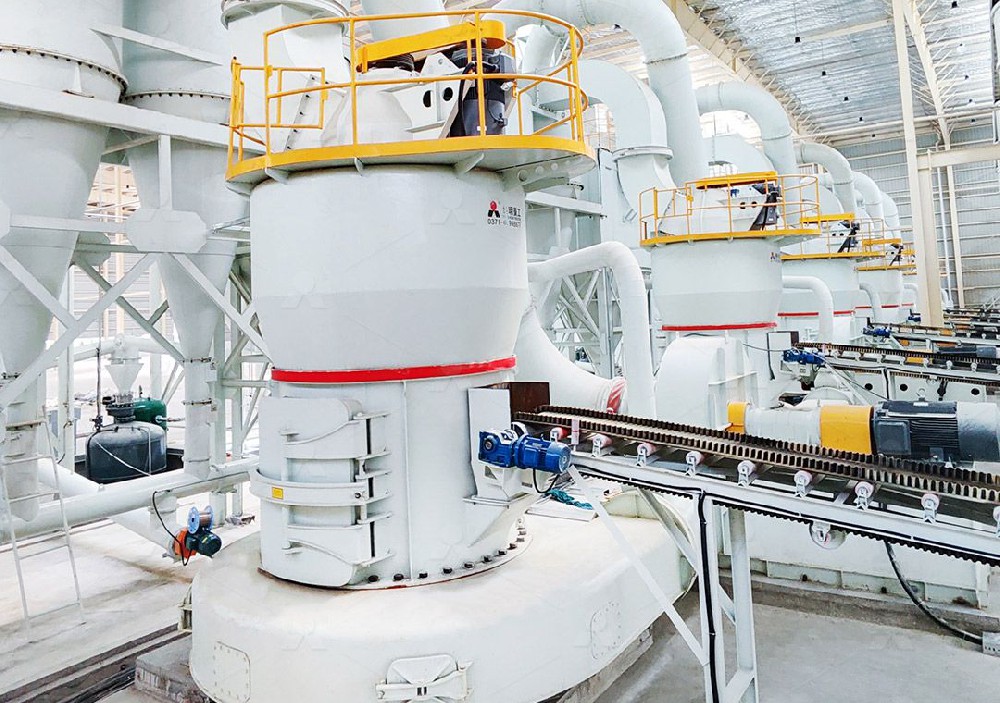Industry News
Where to get a barite grinding mill for oil drilling applications in India – Factory direct and fast shipping
2025-11-12 09:25:32
We are Liming Heavy Industry, a manufacturer of various types of industrial crushers, such as Raymond Mill, Trapezoidal Mill, Vertical Mill, Ultrafine Mill, Ball Mill, etc.
Our mills can process the following minerals:
limestone, quicklime, kaolin, talc, barite, bentonite, calcium carbonate, dolomite, coal, gypsum, clay, carbon black, slag, cement raw materials, cement clinker, etc.
If you need a mill to process stone or minerals into powder, please feel free to contact me (WhatsApp: +86 153 3380 7511). Thank you.
Barite, also known as barytes, is a key industrial mineral widely used in oil and gas drilling applications across India. Its high density, chemical stability, and non-abrasive nature make it ideal for use as a weighting agent in drilling muds, which help control formation pressure and prevent blowouts. With India's growing exploration activities in both onshore and offshore fields, demand for finely ground barite powder continues to rise. For oilfield suppliers, service contractors, and mineral processors, selecting the right barite grinding mill — and sourcing it directly from a reliable manufacturer — is crucial to ensuring consistent quality, timely delivery, and long-term profitability.

Why barite grinding quality matters in oil drilling
Drilling mud formulations depend on barite with a specific gravity of at least 4.2 and a controlled particle size distribution. If the grinding process is inconsistent or the powder contains too many oversized particles, the mud can lose viscosity or fail to maintain hydrostatic pressure, increasing the risk of well instability. Fine, uniform barite powder also enhances suspension properties, reduces abrasion on pumps, and improves fluid circulation in deep wells.
A professional barite grinding system ensures that the finished product meets API (American Petroleum Institute) standards for oilfield use. High-precision classification, stable grinding pressure, and efficient dust collection are all key features of a high-quality grinding mill used for this application.
_1761355701094.jpg)
The advantages of using a vertical or Raymond-type grinding mill
In India's mineral processing sector, vertical roller mills and Raymond mills are widely used for barite grinding. These systems provide:
Stable particle size control: Adjustable fineness between 80–400 mesh, suitable for drilling-grade specifications.
High throughput: Continuous, automated operation suitable for large-volume production demanded by oilfield supply chains.
Low energy consumption: Compared to traditional ball mills, vertical and pendulum mills consume up to 40% less energy per ton of finished product.
Environmentally friendly operation: Modern dust collection systems keep the production area clean and compliant with environmental standards.
Compact layout: Vertical mills integrate grinding, classification, and conveying in a single structure, saving installation space and reducing civil construction costs.

Factory-direct supply and logistics advantages
India's oil and gas drilling market relies heavily on timely material supply, especially in regions like Gujarat, Assam, and Rajasthan. Sourcing barite grinding mills directly from the factory helps buyers reduce procurement costs, avoid dealer markups, and ensure faster lead times. Direct cooperation with the manufacturer also guarantees better technical support, spare parts availability, and customization according to local site conditions.
Liming Heavy Industry, one of the global leaders in industrial grinding equipment, provides complete barite processing solutions for oilfield applications. The company offers a full range of mills — from efficient Raymond systems for small to medium plants to advanced vertical mills for high-capacity operations. Liming's equipment can be tailored to meet Indian drilling mud specifications, ensuring that the final product meets both domestic and export quality standards.
_1761296107304.jpg)
Key considerations when choosing a barite grinding mill
Production capacity — Evaluate the expected throughput based on your barite reserves and customer demand.
Target fineness — Most drilling-grade barite requires a product size between 200–325 mesh; select a mill capable of precise control.
Energy efficiency — Energy cost is a major operational factor; a mill with lower kWh/ton output saves money over time.
Automation and control system — Choose mills with PLC or intelligent control systems to reduce operator dependency and ensure consistent performance.
After-sales service and parts availability — Reliable service ensures less downtime, higher uptime, and better return on investment.

Why Liming Heavy Industry is a strong choice
Liming Heavy Industry offers turnkey grinding plant solutions — from raw material feeding to finished product collection. Each system is engineered for reliability, efficiency, and compliance with API barite standards. The company's technical team assists clients in system design, installation, commissioning, and performance optimization.
With factory-direct pricing, flexible configuration options, and global logistics capabilities, Liming ensures fast shipping and professional support for customers in India. The company's grinding mills are already serving oilfield supply chains in Asia, the Middle East, and Africa, proving their durability and consistent quality under industrial-scale operation.
For mineral processors or drilling chemical suppliers in India seeking reliable barite grinding solutions, a direct partnership with a proven manufacturer like Liming Heavy Industry offers both economic and operational advantages. By investing in efficient, stable, and energy-saving grinding equipment, companies can secure consistent product quality and a stronger competitive position in the oilfield materials market.
_1761355701097.jpg)
Frequently Asked Questions
1. What type of grinding mill is most commonly used for barite in oil drilling?
Raymond and vertical roller mills are most commonly used because they provide stable, uniform fineness suitable for API-grade barite powder.
2. What fineness is required for drilling-grade barite?
Typically, barite for drilling mud is ground to 200–325 mesh, ensuring high specific gravity and proper fluid density.
3. How much does a complete barite grinding system cost?
Depending on capacity and automation level, a factory-direct grinding system can range from USD 80,000 for small units to over USD 500,000 for large-scale vertical mills.
4. What is the delivery time for a new grinding mill to India?
Factory-direct delivery usually takes 30–60 days including manufacturing, quality inspection, and international logistics.
5. Can the same mill process other minerals besides barite?
Yes, Liming's mills can also grind limestone, dolomite, calcium carbonate, gypsum, and other non-metallic minerals with adjustable fineness.
6. Does Liming Heavy Industry offer installation and technical training?
Yes, Liming provides on-site installation guidance, commissioning, operator training, and long-term service support for all grinding systems.
7. Why choose a factory-direct supplier instead of a local dealer?
Factory-direct sourcing ensures lower prices, authentic equipment, faster shipping, and better technical communication with the engineering team.







